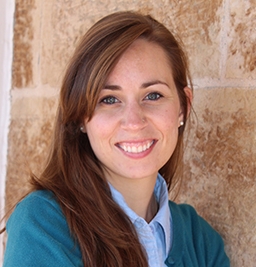Four graduate students win Fulbright-Hays doctoral research awards
MADISON — Four students from the University of Wisconsin–Madison have been selected as recipients of the Fulbright-Hays—Doctoral Dissertation Research Abroad Awards for 2017, the U.S. Department of Education has announced.
Fulbright-Hays DDRA Awards provide funds to doctoral students to conduct research outside the United States in foreign languages and area studies for up to 12 months. The awards are funded through the department’s International and Foreign Language Education office.
“The Fulbright-Hays DDRA awards provide an unparalleled opportunity for UW–Madison graduate students from across disciplines to conduct extended research abroad,” says Mark Lilleleht, assistant director for awards in the Institute for Regional and International Studies at UW–Madison. “These awardees are strengthening their scholarship while building connections and core skills — including deepening language proficiency — that they will be bringing with them into future classrooms and sharing with the next generation of students and in communities.”
All four UW–Madison DDRA recipients will be spending 12 months abroad and will begin their research in the coming year:
– Lindsay Ehrisman, Uganda, advised by Neil Kodesh, Department of History: “Intimate Therapeutics, Affective Medicine: Forging Bonds of Affection, Knowledge, and Power in Uganda’s Distant Past.”
Ehrisman’s dissertation research explores the interconnected histories of intimacy and health in precolonial Uganda (500–1900 C.E.). She will collect oral traditions and cultural vocabulary related to the topics of intimacy and health through interviews conducted in English and Luganda with local historians, linguists and traditional therapeutic specialists from 10 related language communities across present-day Uganda and northwestern Tanzania.
—Nicolle Etchart, Ecuador, advised by Lisa Naughton, Department of Geography: “A Combination of Carrots and Sticks — Opening the Black Box of Effective Forest Governance in Ecuador”
Ecuador’s flagship economic incentive-based forest conservation initiative contracts with private and communal landholders to protect their forests in exchange for a financial incentive. A recent expansion of this program by the Ecuadorian government will pay individuals and communities residing in state-managed protected areas to bolster existing regulations on forest use. Etchart will examine the effectiveness of these policies and their impact on the forests and people involved.
—Akshay Sarathi, Tanzania, advised by Henry Bunn, Department of Anthropology: “The Evolution of Swahili Maritimity”
Sarathi will study how Swahili maritimity evolved from the 4th millennium B.C.E. to the 1100s C.E. Sarathi will propose a maritime model that divides faunal remains into marine wild, non-marine wild, and domestic. The impact of climate change, urbanization, and animal domestication on Swahili maritimity will also be assessed.
—Alicia Wright, India, advised by Jo Ellen Fair, School of Journalism and Mass Communication (Wright) and African Cultural Studies (Fair): “On the Translated Record — Journalists Writing in India’s Multilingual Politics”
Wright’s dissertation will examine the influence of language in reporting political news. Research will focus on Indian journalists in New Delhi writing in Hindi and English. By shadowing and conducting in-depth interviews, Wright will explore the degree to which journalists reflect or alter meaning from source language to target language in multilingual writing.
###








